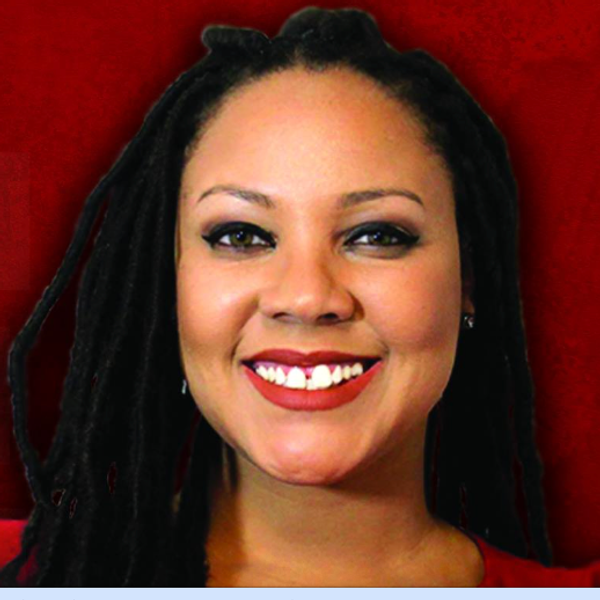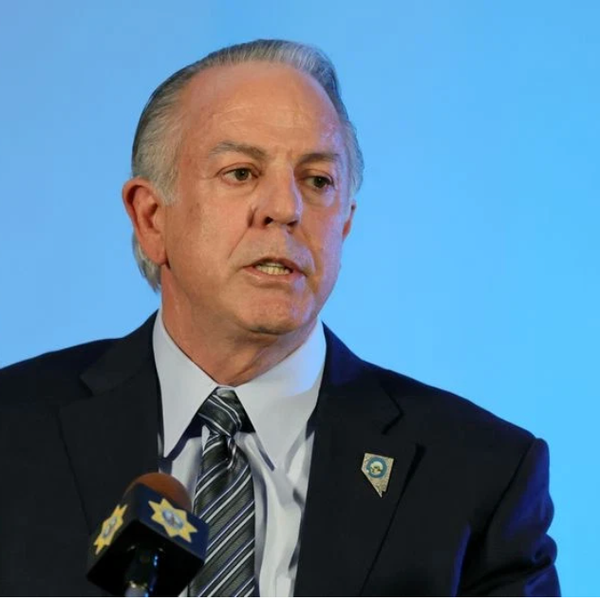Bachmann, Pawlenty Trade Barbs At Debate
AMES, Iowa (AP) — Minnesota rivals Tim Pawlenty and Michele Bachmann sparred bitterly Thursday night during an eight-candidate Republican debate, trying to break out of the GOP presidential pack ahead of an Iowa test vote with huge consequences. Each seeks to become the main challenger to Republican front-runner Mitt Romney.
Their efforts were newly complicated by Texas Gov. Rick Perry, who stole some of the spotlight from afar by making it known hours before the debate that he was running for the GOP nomination.
Romney, a multimillionaire businessman who casts himself as a jobs creator, made his own stir earlier in the day when, at the Iowa State Fair, he declared that “corporations are people,” drawing ridicule from Democrats.
Those were just the latest twists in the most consequential week yet in the 2012 Republican presidential nomination fight.
In the two-hour debate, the squabbling by Pawlenty and Bachmann allowed Romney, the GOP front-runner making his second presidential bid, to remain above the fray and emerge relatively unscathed by his rivals.
Though every debate participant assailed President Barack Obama, it was clear from the confrontations between Pawlenty, a former Minnesota governor, and Bachmann, now a member of Congress, who had the most on the line ahead of Saturday’s straw poll that could well winnow the field.
On stage just a few minutes, Pawlenty, who is struggling to gain traction despite spending years laying the groundwork for his campaign, accused Bachmann of achieving nothing significant in Congress, lacking executive experience and having a history of fabrications.
“She’s got a record of misstating and making false statements,” Pawlenty said.
Bachmann, who has risen in polls since entering the race this summer and has eclipsed Pawlenty, quickly responded with a list of what she called Pawlenty’s liberal policies when he was Minnesota’s governor, including his support for legislation to curb industrial emissions.
“You said the era of small government is over,” she told Pawlenty. “That sounds a lot like Barack Obama if you ask me.”
Much of the rest of the debate was heavily focused on the Democratic incumbent, with Romney and his seven rivals each seeking to prove he or she was the strongest Republican to take on Obama.
“I’m not going to eat Barack Obama’s dog food,” Romney said when asked whether he would have vetoed the compromise legislation that Congress gave to the president that raised the debt ceiling. “What he served up is not what I would have done if I’d had been president of the United States.”
Notably absent from the eight-candidate spectacle were Perry, who was in Texas preparing for a weekend announcement tour to early primary states, and former Alaska Gov. Sarah Palin, who isn’t a candidate but was stoking presidential speculation anew with a visit to the Iowa State Fair.
The nation’s teetering economic situation shadowed the debate, with stock market volatility and a downgrade in the U.S. credit rating giving Republicans ample opportunities to criticize Obama. The Democratic president will get his shot to counter the criticism next week during a Midwestern bus tour that will take him through this state that helped launch him on the path to the White House four years ago.
On Thursday, he, too, tried to align himself with a public fed up with economic uncertainty and Washington gridlock. “There is nothing wrong with our country. There is something wrong with our politics,” he declared in Michigan, where he was touring an advanced-battery factory
In Iowa Thursday night, the Republicans commanded the spotlight.
Seven candidates — Pawlenty, Bachmann, former Utah Gov. Jon Huntsman, former House Speaker Newt Gingrich of Georgia, Texas Rep. Ron Paul, former Pennsylvania Sen. Rick Santorum and businessman Herman Cain — sought to separate themselves from the packed field and emerge as the chief alternative to Romney.
Pawlenty, who hesitated in a June debate to criticize the former Massachusetts governor, this time accused him of sharing views with Obama on spending and health care. “We’re going to have to show contrast, not similarities” with the incumbent president, Pawlenty said.
He sought repeatedly to tie Romney and Obama together by poking at both.
“Where’s Barack Obama on these issues. You can’t find his plans on the most pressing issues in this country,” Pawlenty said, promising audience members and TV viewers he would “come to your house and cook you dinner” if they could find Obama’s proposals. “Or if you prefer I’ll come to your house and mow your lawn … In case Mitt wins, I’d limit it to one acre.”
Romney, who has several homes, smiled and took a pass when given a chance to respond, saying: “That’s just fine.”
He kept his focus on Obama, saying: “Our president simply doesn’t understand how to lead and how to grow the economy.” He also criticized Democrat Obama on the downgrade of the nation’s credit rating.
Appearing in his first presidential debate, Huntsman acknowledged he had not yet presented an economic plan, but he cited his economic record as governor of Utah as evidence of what he would accomplish as president. He defended his service as ambassador to China under Obama as a patriotic act.
Huntsman, who is not competing in the Iowa caucuses where social conservatives dominate, also tried to differentiate himself from the rest of the field. He defended his support for civil unions and offered no apologies for other moderate positions he holds.
Gingrich, pressed on the implosion of his campaign amid financial strife and infighting earlier this summer, chastised the Fox News panel for “gotcha questions.” He said Republicans including Ronald Reagan and John McCain had staff defections during their campaigns, and he said he intended, in his words, to “run on ideas.”
Roughly 45 minutes into the debate, Santorum raised his hand and said: “I haven’t gotten to say a lot.”
Showing the wide diversity of opinion, Paul gave a staunchly libertarian answer to nearly every question from the economy to foreign affairs, essentially saying the United States should have friendly relations even with countries that violate human rights and not interfere in their internal affairs. “It’s about time we talk to Cuba,” Paul said at one point. He also said the United States had created the hostile relations between itself and Iran.
Even before the debate began, it was a campaign day to remember.
At an appearance early in the day, Romney was badgered by hecklers at the state fair. In response to chanting about corporations, he said that “corporations are people,” a comment Democrats predicted would be a defining moment of his campaign.
Romney, who has struggled with an aloof and elitist image as he tries for the GOP presidential nomination a second time, made the remark while outlining options for reducing the federal deficit and overhauling entitlement programs.
Despite tea party outrage that sometimes focuses on banks and auto companies, Romney has said to applause from GOP audiences that the rights of business are being trampled under Obama to the detriment of the struggling economy. But in Thursday’s audience, the line encountered resistance.
A few hours after Romney’s awkward moment, Perry spokesman Mark Miner confirmed that the Texas governor would announce that he was running for president while in early primary states on Saturday.
Perry’s candidacy is certain to upend the race, and he could challenge Romney for the role of jobs-focused candidate.
The conservative governor is seen as a potential bridge between the party’s social and economic wings.
Asked about Perry’s candidacy during the debate, several of his opponents welcomed him to the race — and used the opportunity to criticize him. Cain called Perry “one more politician,” while Paul said he was pleased Perry was joining the field because “he represents the status quo.”








